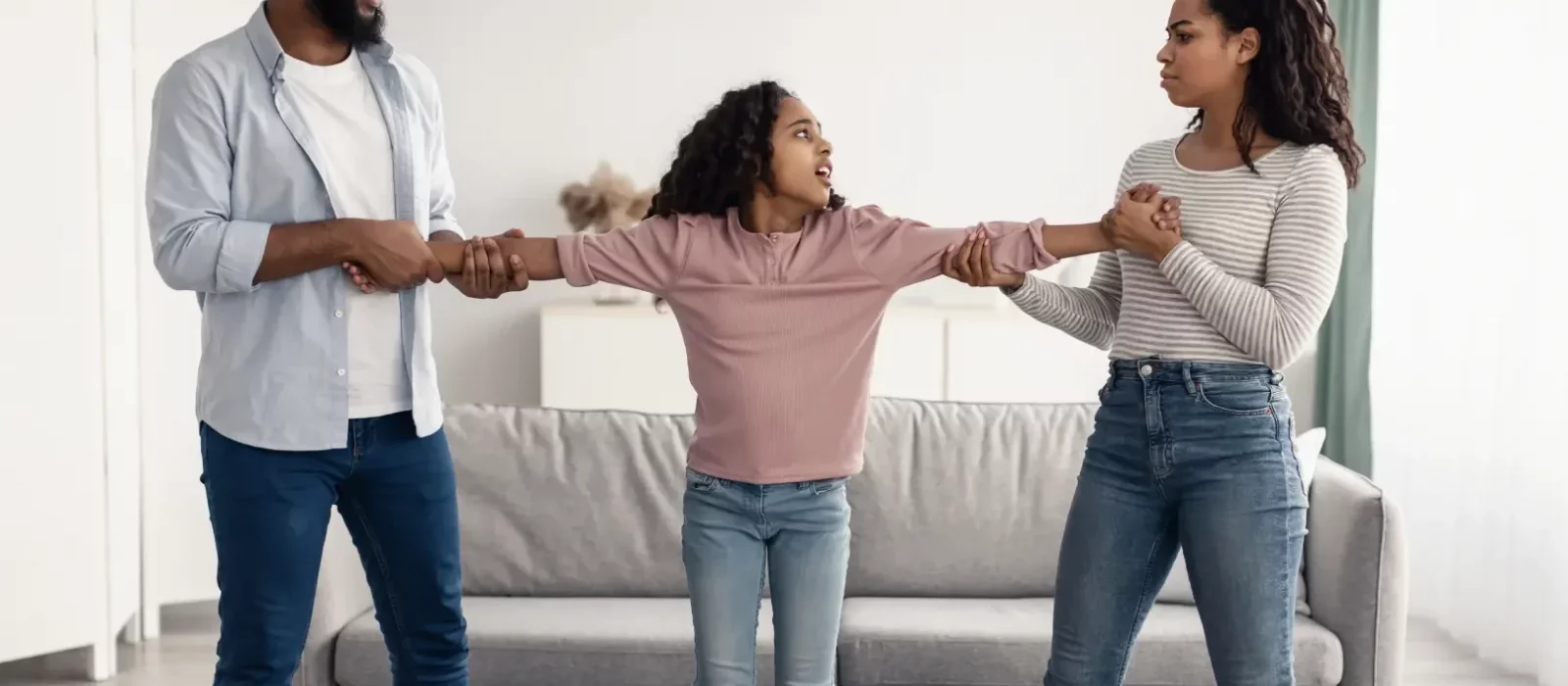History and Prevalence
Family instability has been looked at in the consequential areas of divorce, separation, non-marital child-raising, and cohabitation. The United States leads in these areas, rising in the late 1960s. Following divorce was an increase in non-marital child raising.
Effects of Divorce
Divorce and its impact on a child’s mental health can be viewed positively and negatively. In some respects, divorce can be positive as it removes the opportunity for a child to be subjected to poor relational communication. More severe cases draw the subjection of abuse between adults and the child subjected to secondary abuse. The negative aspect of divorce includes the child being at an increased risk for adjustment issues, mood instability, behavioral problems, difficulties in school, reduced social support, and substance use problems.
Secondary problem areas may occur for a child experiencing divorce. These include; one or both parents experiencing financial problems, ineffective parenting from one and limited contact from another, and cultural or religious issues based on the views of divorce [cultural, religious] from extended family members. Children may also be subjected to legal proceedings between parents that can involve custody and mediation hearings.
Mediation Benefits
A mental health professional can provide mediation to advise parents and support the child’s best interest in custody agreements. With this guidance, parents can navigate the parenting plan for their children’s best needs. Often parents can be preoccupied with their emotions and mental health regarding the divorce and focus on winning. Mediation involves looking at the child’s future and fostering healthy functioning relationships that the child can develop.
Tips to Reduce the Negative Impact
- Use Consistent discipline, get on the same page
- Don’t put kids in the middle
- Co-parent peacefully
- Empower your child
- Teach coping skills to your child – teach them to manage thoughts, feelings, and behaviors with problem-solving skills
- Monitor your child closely for mental health problems, behavior problems, academic performance, and risk-taking behavior
- Help your child feel safe and secure – fear of abandonment is expected. When the child feels safe and secure, separation anxiety decreases
- Maintain a healthy relationship with your child
Adult Children of Divorce A.C.O.D.
In a 2013 film, “A.C.O.D,” starring Adam Scott, Clark Duke, Richard Jenkins, and Catherine O’Hara, a lighthearted portrayal of adult children of divorce shares the psychological impact divorce has on adult children. Though the film is meant to be a comedy, it still sheds light on the effects of divorce on the different developmental stages of adulthood. Adult children are still children and are impacted in such ways that their romantic relationships are affected. They can carry the weight of past resentment and anger and still feel placed in the middle, having to choose sides and even provide emotional support to one or both parents.
In developing a greater understanding and awareness of the problems in life facilitated by divorce, the struggles can be overcome, sometimes on your own or with the support of a clinical professional.
Tips to support your adult child cope with your divorce
- In providing support, remind your adult child that divorce is not their responsibility. Often the adult child feels guilty. Provide emotional safety so they do not think your happiness is their responsibility but is your responsibility.
- Provide your adult child the space to grieve the loss. It’s their loss too. Listen to them instead of taking up space with your feelings.
- Make attempts not to go to war with your ex. Refrain from disparaging remarks around your adult child. You don’t have to get along with your ex, but being civil will go a long way.
- Don’t lean on your adult child for emotional support. Seek a therapist to navigate that with instead.
- Don’t force your adult child to take sides. Don’t overshare. Let your adult child have their relationship with your ex or make up their mind about the relationship they would like to have.
- Be sensitive to letting go of the family home. Give them the opportunity to your adult child to save memories and sentimental items to them.
- Adult children of divorce may struggle with their romantic relationships at this time. Look past yours and listen to them.
- Acknowledge that the holidays will be different now, plan accordingly and spare your adult child from having to choose.
- Be financially responsible so as not to put a financial strain on your adult child.
In summary, divorce is difficult at any age for a child. Children still need to be allowed to be children, and parents still need to be parents. Managing and navigating the mental, emotional, and financial strain sometimes requires mental health assistance.
Resources:
Parental divorce or separation and children’s mental health – PMC
The Psychological Effects of Divorce on Children
Adult Children of Divorce: 10 Surprising Facts Parents Might Not Know




